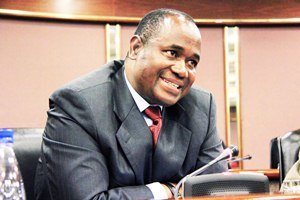
BY OUR STAFF KNIVES are out for Reserve Bank of Zimbabwe (RBZ) governor, Gideon Gono, over his proposed hiking of minimum capital requirements for banks amid allegations that the move is meant to halt indigenous players’ continued operations in the banking sector. Gono proposed to hike the minimum capital requirements of commercial and merchant banks to US$100 million by 2014 from the current US$12,5 million and US$10 million respectively. Building societies and finance houses are required to have minimum capital of US$60 million by June 30, 2014. The uproar over the new bank capital levels comes after a meeting of ministers on Tuesday said the plan was unrealistic under the current economic conditions. In a letter to Gono dated August 1, 2012 and signed by the Bankers’ Association of Zimbabwe (Baz) vice-president Sam Malaba, the body requested a review of the capital threshold to US$20 million by December 2013. The letter was copied to Misheck Sibanda, Chief Secretary in the Office of the President and Cabinet and Finance minister, Tendai Biti. In the letter, Baz argued that banks would be forced to curtail their lending if they were not confident of raising the required US$100 million. The letter said stronger economies like South Africa with Gross Domestic Product (GDP) of over US$300 billion had a minimum capital requirement of US$30 million adding that Zimbabwe, with a GDP of US$10 billion was now expected to increase its capital to US$100 million. The letter was disowned by Baz president, George Guvamatanga at a bankers meeting with Gono on Friday raising questions on the motive behind it. Malaba did not attend the meeting with Gono on Friday. Impeccable sources told Standardbusiness on Friday that Gono had been given ammunition through points raised in the letter to attack the banks when he briefs his principals next week. The new capital thresholds were fine-tuned and approved by the RBZ board on Tuesday with one board member saying the noise made by politicians “is justified since we are approaching elections”. “We will stick by it,” the board member said, adding “even if it is not implemented, some banks will go for it and deposits would flock to those institutions.” “From what we hear, the behaviour of ministers in throwing out the plan clearly shows politicians are embedded to these banks.” Gono has in the past warned bankers from seeking political protection whenever he cracked the whip on them. The board member said initially it was proposed to have a two-tier minimum capital requirement plan for local and foreign banks. This, the board member said, was shot down. In addition, the deadline for phase one (25%) of the minimum equity capital had been proposed as September 30. This was seen as unrealistic since there was not enough time. It was at this point that September 30 was chosen as the deadline for submitting re-capitalisation plans, this paper was told on Friday. The creation of a strong and credible banking sector is one of the conditions towards fulfilling the IMF’s staff monitored programme touted to unlock Zimbabwe’s fortunes, particularly improved liquidity and long term finance. The global lender’s numerous reports on Zimbabwe pointed to a weak and fragmented banking sector susceptible to shocks. Kupukile Mlambo, Gono’s deputy, told bankers that using GDP alone as a basis of determining the level of capitalisation was misleading. He said although GDP measures the size of the economy it does not take into account the level of sovereign risk which needs a level of cushioning. Gono told bankers on Friday institutions have to engage RBZ for discussions on roadmaps instead of “having discussions in various clubs.”











